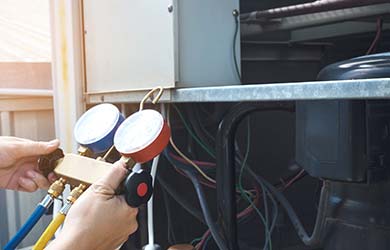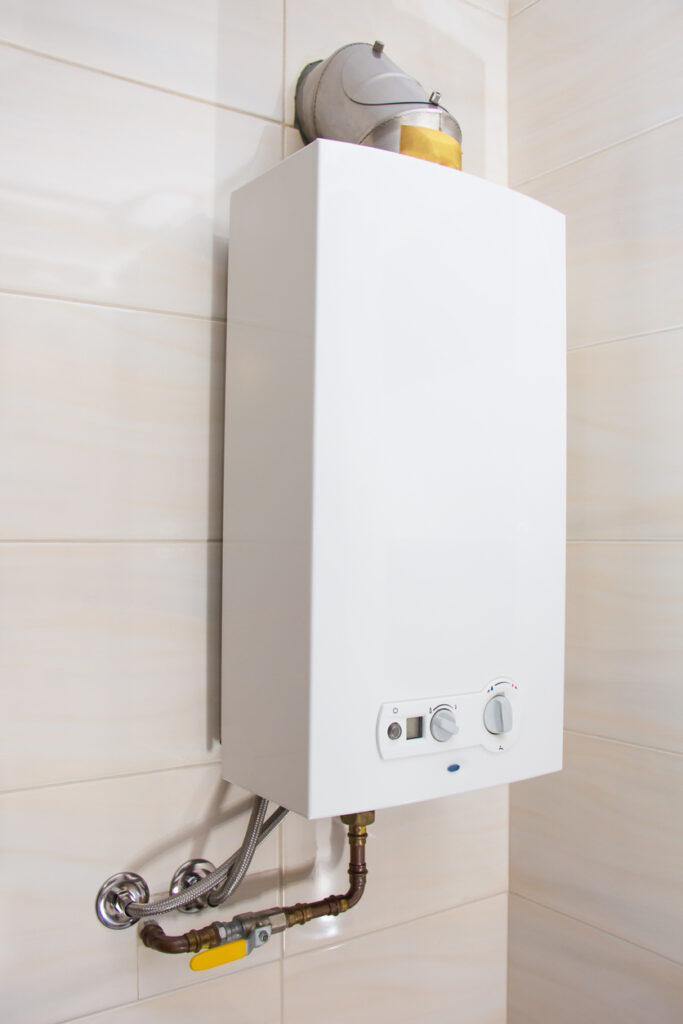According to the U.S. Energy Information Administration, in 2020, nearly 90% of all households in America used some kind of air conditioner. It’s safe to say that air conditioners are some of the most important appliances in our homes.
Despite the ubiquity of air conditioners, many people don’t know much about what’s inside them. Apart from knowing the exterior parts and the air filter, most people don’t know the other parts of their AC and would simply call experts when there’s an issue.
Even though calling experienced technicians is highly recommended, it still pays to know the different parts of the AC so you can do your due diligence to prolong your unit’s lifespan and so you know what to do when there’s an issue.
For instance, one of the most common issues with air conditioners is capacitor failure. Capacitor failure can cause a variety of problems: Your air conditioner may shut down suddenly or not turn on. The capacitor is an essential part of your unit, and it’s quite easy to replace. You can also take some steps to prolong its life so you can always have your trusty AC working when you need it.
Let’s learn more about the small but important device that is the AC capacitor.
What Is an AC capacitor?
A capacitor is a small, cylindrical device that’s essential to your AC. In an air conditioner, a capacitor acts like a battery: It stores energy, which it uses to kickstart the motors in the AC and get the whole cooling system up and running.
The start capacitor is responsible for this jolt of energy, while the run capacitor sustains the flow of electricity so your air conditioner can run for long periods.
The capacitor is needed because air conditioners are large appliances that need a lot of power. The initial surge of power needed to start your AC may overwhelm your house’s electrical system, which isn’t strong enough to jump-start your air conditioner by itself.
The capacitor may be small, but it’s crucial to your air conditioner. Without it, your AC won’t start at all, and it won’t have a steady flow of electricity to power it.
How Long Does an AC Capacitor Last?
AC capacitors are hardy devices that have a relatively long lifespan. They’re built to last between 10 and 20 years depending on the brand or manufacturer. However, many factors make capacitors fail much earlier than that. It’s common for an AC to need a new capacitor after 10 years of use.
Capacitors are most sensitive to heat, so in places like Florida where summers can go up to 95 degrees Fahrenheit, they can degrade much faster. If you live in a warmer place, you should always consider the possibility that your capacitor might not last its intended lifespan.
The life of air conditioner capacitors also depends on the regularity of maintenance. A constantly dirty or neglected air conditioner can overheat the capacitor and shorten its lifespan. Loose debris can also damage the capacitor and cause it to fail.
Other issues that can affect capacitors are power surges and regular wear and tear.
Why Is It Important To Replace Your Capacitor?
You’ll know if your air conditioner has a broken capacitor based on some common warning signs. These symptoms are inconvenient and will happen repeatedly, getting worse and worse unless you address the problems.
Here are some things that can happen when your capacitor isn’t working:
- Your air conditioner won’t start.
- Your air conditioner suddenly shuts off.
- Your AC doesn’t blow cold air anymore or it takes time to do so.
- You hear a clicking or humming noise from the outside unit, but the fan isn’t turning.
- Your energy bills are suddenly higher even though you’ve made no usage changes.
- There’s a burning smell coming from the outside unit, often accompanied by a chemical smell.
A faulty capacitor won’t just create small inconveniences, though. It can damage your entire AC if left unchecked. When an AC capacitor is damaged, it can also damage whatever is directly connected to it, which includes the air conditioner’s compressor, blower, and outdoor fan motor.
When you have a bad capacitor, the motors can burn out, and you may need to replace them or even your whole AC if you don’t act quickly.
If you’re noticing the common symptoms of a faulty capacitor or if you see that your capacitor is physically cracked, bloated, or leaking, don’t delay. Call an HVAC technician right away, especially if you’re not well-versed in air conditioning repairs.
How To Make Your Capacitor Last
There are many things you can do to help extend the lifespan of your AC capacitor. Taking these steps can help make sure you always have a working air conditioner when you need it.
You can also save money in the long run by avoiding costly repairs or even AC replacement. Here are some things you can try:
- Don’t expose your AC to extreme heat
When you live in a hotter area like Florida, there’s not much you can do to avoid exposing your AC to severe heat. However, there are some ways you can lessen the amount of heat your AC is exposed to. First, you can try your best to shield it from direct sunlight. If your outside unit is east- or west-facing, try to put up a structure like an awning to shield it, especially in the height of summer. If you’re just about to install a new AC, consider positioning the outside unit so it’s facing north.
- Don’t overwork your AC
When the sun is blaring outside, it’s tempting to bring up your AC to the highest fan speed and down to the lowest temperature. If you want your capacitor to last, it’s best to exercise some restraint with your AC so it won’t overheat. You may think turning up the temperature and lessening the fan speed on hot days is defeating the purpose of an AC. However, you must remember that air conditioners are still machines and can break down anytime if overheated.
- Perform constant maintenance
Another way to overwork your air conditioning system is to leave it running dirty. The dirt clogs up the components inside, and the whole system struggles to run smoothly. Always make sure your air conditioner is maintained. Clean the air filters regularly, and call experts to clean the inside of the machine at least once a year. This can also help remove debris that can physically damage your AC capacitor.
- Install an HVAC surge protector
As long as you’re connected to the power grid, there will always be small electrical fluctuations that can damage your capacitor over time. You may also experience lightning strikes and other unintended electrical issues that can damage your appliances.
One way to protect your capacitor and your AC as a whole is to install an HVAC surge protector. If you live in an area where there are regular storms, you can also get a professional to install a surge protector for your whole house.
Even though you can take many steps to protect your AC capacitor, sometimes, you just need to let go. If your unit is older and you’re already noticing some issues, it’s time to replace the capacitor.
Although AC capacitor replacement is a quick and easy fix, it’s possible to make some mistakes that can turn costly in the future. You may accidentally use the improper voltage rating for your replacement and damage your AC in the process. You may also end up electrocuting or injuring yourself if you handle the capacitor incorrectly.
To avoid any problems, call a trustworthy HVAC technician to handle it. The process is quick and easy and quite inexpensive.
Choose Mac 5 Services for Expert Home Services
Whether you need an AC capacitor replacement or you need to have your unit looked at, don’t hesitate to call our licensed technicians to fix any air conditioning issues for you.
We can do air conditioning repair, as well as maintenance and installation. Our team of experts is available 24/7 for all your air conditioning needs.
You can rest assured that our licensed technicians know how to service just about any make or brand of AC, and they’ll provide excellent service for a price you can trust.
Call the Mac 5 Services team today at 321-244-7500 to schedule service.







